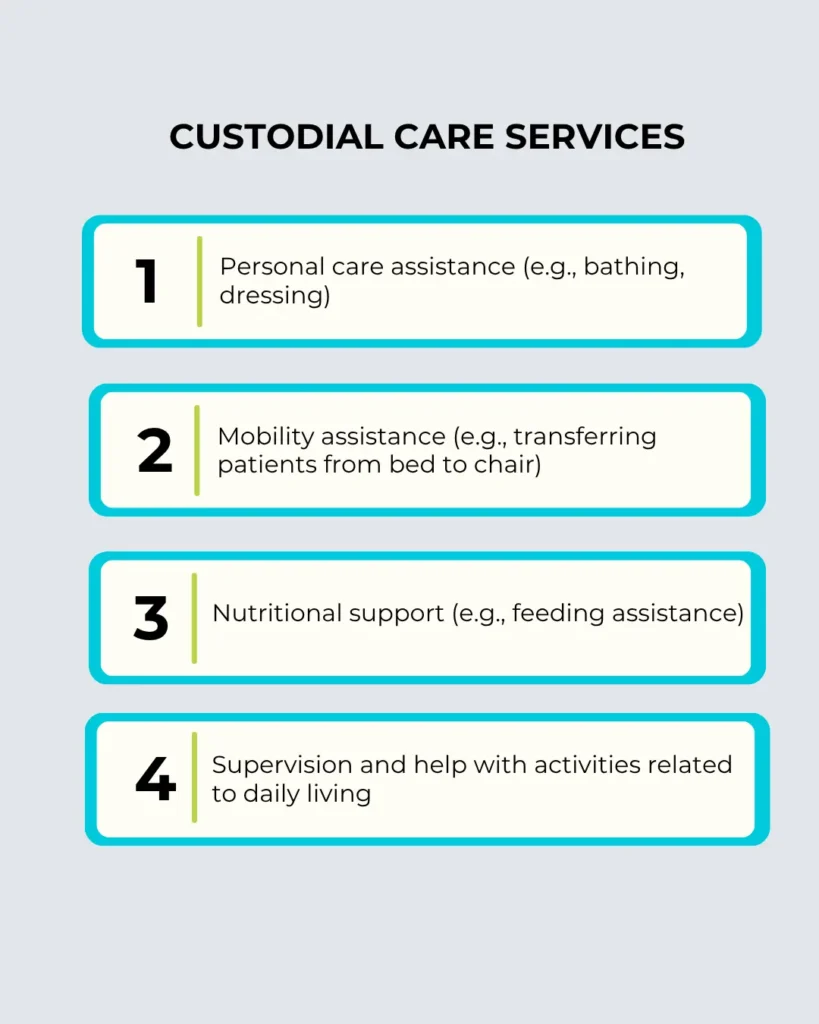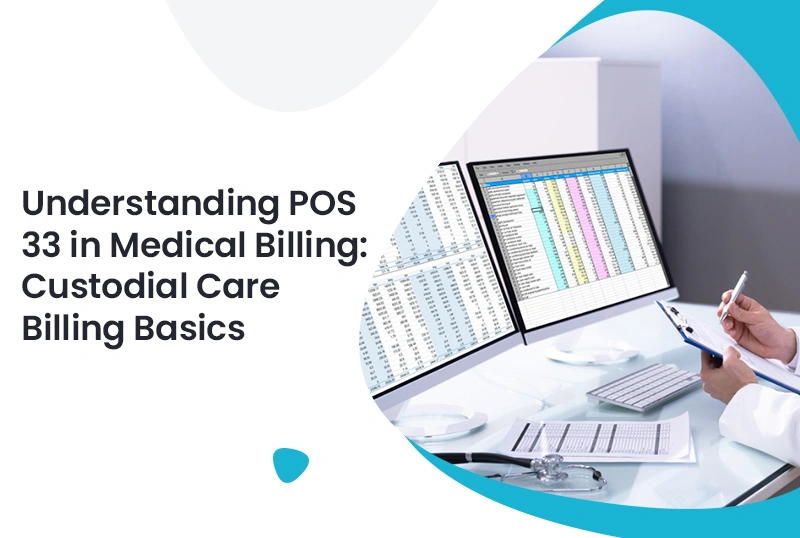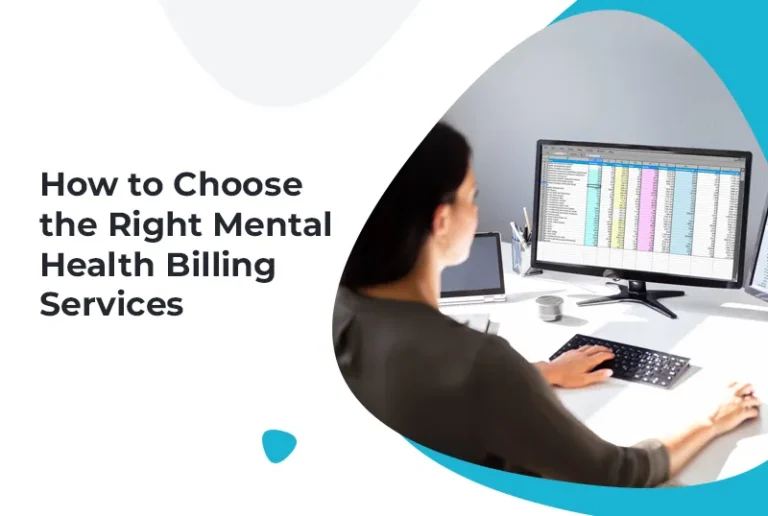POS 33 is an important code used to identify custodial care services provided in long-term care facilities. If you provide custodial care or are responsible for billing these services, Itis essential for both compliance and receiving proper reimbursement.
You will have a clear understanding of how to use it effectively in your practice and avoid costly billing mistakes. For practices seeking guidance, leveraging billing services medical can help streamline this process, ensuring compliance and timely reimbursement.
What is POS 33 in Medical Billing?
POS 33, or Place of Service 33, represents custodial care services provided in a skilled nursing facility (SNF) or long-term care setting. Use this code to bill insurance providers, including Medicare and Medicaid, when a patient receives long-term care focused on basic daily living assistance rather than medical treatment.
Custodial care typically involves services like help with personal hygiene, mobility, feeding, and other daily tasks. These services are important for individuals who are unable to perform these activities independently due to aging, illness, or disability.
Key Features of POS 33:
- Used for custodial care services provided in skilled nursing facilities.
- Indicates that the patient is not receiving active medical treatment but instead needs assistance with daily living.
- Ensures accurate claim processing and appropriate reimbursement for custodial care services.
When to Use POS 33 in Medical Billing

Examples of Situations Where POS 33 is Used:
- A patient in a skilled nursing facility receives help with daily living tasks such as bathing and dressing.
- A resident of a long-term care facility who needs assistance with eating or moving around.
When NOT to Use POS 33:
- If the patient is receiving medical care (e.g., wound care, physical therapy), It should not be used. Instead, a different POS code like POS 21 (Inpatient Hospital) or POS 32 (Nursing Facility) may apply depending on the nature of the care.
- For patients receiving rehabilitation services or medical treatment in an outpatient setting, It should not be used.
The Importance of POS 33 in Custodial Care Billing
1. Ensuring Accurate Billing and Reimbursement
Using POS 33 correctly ensures that the insurance provider understands the type of care being provided. If It is not used correctly, it could lead to billing errors, claim denials, or delayed payments. This is because insurance companies use the POS code to determine the type of care provided, which in turn affects the reimbursement rate.
For efficient processing and accurate reimbursement, it’s important to implement proper revenue cycle management healthcare practices.
2. Proper Documentation for Compliance
For accurate billing, it is crucial to provide detailed documentation that supports the services being provided under POS 33. This includes:
- Patient’s diagnosis and condition
- Description of custodial care services provided (e.g., assistance with bathing, dressing, etc.)
- Duration of care provided
3. Reimbursement Rates for Custodial Care
Insurance companies and Medicare will use the POS 33 code to determine the appropriate reimbursement rate for custodial care. Custodial care services generally receive a lower reimbursement rate than medical treatments. However, using POS 33 ensures that your practice gets paid for the services rendered within the parameters of the insurance plan.
Best Practices for Using POS 33
1. Ensure Accurate Documentation
Document all custodial care services provided to your patients in skilled nursing or long-term care settings. The documentation should include details such as:
- The tasks provided (e.g., bathing, dressing)
- The duration of each service
- Any assistance with feeding or mobility
2. Understand Reimbursement Guidelines
Each insurance provider may have slightly different guidelines for reimbursement rates for custodial care services. Familiarize yourself with Medicare, Medicaid, or any private insurance plans you work with to understand their reimbursement structures for custodial care. This will help ensure that you receive the correct payment for the services provided under POS 33.
3. Stay Up-to-Date with Coding Changes
As with all medical billing codes, It may change over time. Stay updated with the latest billing guidelines and modifications from the American Medical Association (AMA) or your insurance carriers. Make sure your billing staff is trained to apply the correct codes and modifiers in compliance with these updates.
4. Collaborate with a Medical Billing Company
Working with a medical billing company that specializes in custodial care billing can help ensure that POS 33 is used correctly. A professional billing company can handle your claims efficiently, track denials, and work with payers to ensure timely reimbursement for services provided.
Conclusion
Understanding POS 33 in medical billing is essential for any healthcare provider offering custodial care services in a skilled nursing or long-term care facility. By using the correct code, ensuring accurate documentation, and following best practices, you can ensure timely reimbursements and avoid billing errors.
To simplify your billing process, consider partnering with a medical billing company that specializes in custodial care billing. With the right support, you can optimize your practice’s revenue cycle management (RCM) and focus on providing the best possible care for your patients.
FAQs
Q: How does POS 33 affect reimbursement?
A: It helps insurance companies determine the appropriate reimbursement rate for custodial care services, ensuring accurate payments for services rendered.
Q: What documentation is needed for POS 33 billing?
A: Documentation should include details about the type of care provided, duration of service, and the patient’s condition, all of which support the billing under POS 33.
Q: Can POS 33 be used for medical treatment?
A: No. It is specifically for custodial care services. For medical treatment, different POS codes like POS 21 (Inpatient Hospital) or POS 22 (Outpatient Hospital) may apply.
Q: Why should I work with a medical billing company for POS 33?
A: A medical billing company ensures that It is used correctly, improving your billing accuracy and speeding up the reimbursement process.







